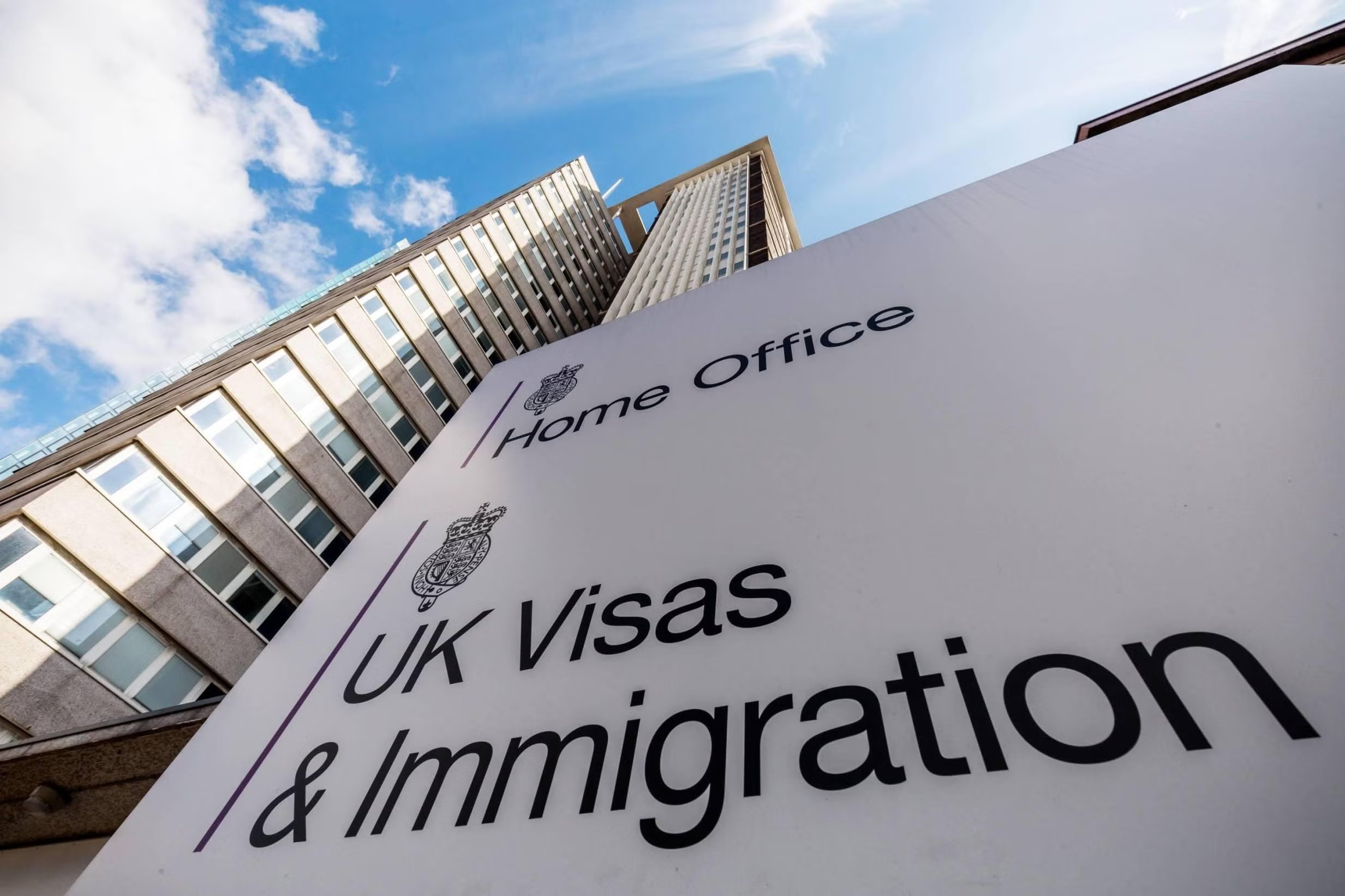
Understanding UK Immigration Rules for Overstayers and Spouse Visas
Understanding UK immigration rules is essential for those who may be overstaying their visa or seeking a spouse visa. If your visa expires, you must apply for a visa or application for leave to remain within the UK to avoid complications. According to UK immigration law, you typically have days to leave the uk after your visa expiry date. Failure to do so may result in being banned from re-entering the uk for a period of time. It’s crucial to submit your immigration application within 14 days of your leave expires to ensure you can live in the uk legally.
If you are a partner or spouse of a UK citizen, you may qualify for a family visa under the Immigration Act 1971. A successful application for this visa allows you to stay in the uk and live with your partner. However, remember that if your current visa is still valid, you should apply for a visa before it expires. If you’re applying from outside the uk, ensure that your application is submitted within 30 days of your arrival in the UK. Keeping track of your biometric residence permit and adhering to UK law is crucial for a smooth immigration process.
What Happens if You Overstay Your Visa in the UK?
Overstaying your visa in the UK can have serious consequences. If you’ve overstayed your visa without reasonable cause, you may be subject to enforcement action by the Home Office. You could be required to leave the UK within 30 days of receiving a notice, and failure to do so may lead to further penalties. Additionally, if you wish to apply for a UK visa in the future, your previous overstaying may affect your eligibility and could lead to increased application fees.
It’s important to seek immigration advice if you find yourself in this situation. According to Section 24 of the Immigration Act, individuals who have overstayed their leave may not apply for a visa without addressing the overstay first. If your visa has expired, you need to apply for a UK visa or leave the UK voluntarily to avoid complications in future applications for the UK government.
In 2025, the implications of overstaying your visa may become even more stringent, making it vital to understand the importance of addressing your immigration status promptly. If you’ve entered the UK and know you will be overstaying your UK visa, you should consider options to extend your visa or prepare to return to your home country before the expiration of your visa to ensure compliance with UK immigration laws.
How Does Overstaying Affect Your Immigration Status?
Overstaying in the UK can have serious implications for your immigration status in the UK. If you remain in the country longer than your UK visa allows, especially if your visa or leave expired, you may face difficulties with future applications for UK government services. This includes submitting a late immigration application, which could be denied due to your previous application for leave being expired.
If you fail to leave the UK within the 30 days to leave period after your visa expires, you could be subject to immigration fines and restrictions on applying for visas or settling in the UK in the future. Those who have been settled in the UK for between 1 to 5 years may find that overstaying affects their future applications for UK government services.
By 2025, the UK may implement stricter rules regarding the immigration health surcharge for overstayers, further complicating your ability to remain or return. Therefore, it is critical to understand the consequences of overstaying in the country to avoid jeopardizing your chances of bringing a partner in the UK or applying for residency.
What Should I Do if I Overstay My Visa?
If you find yourself overstaying in the country with an expired visa, it’s crucial to act quickly. You generally have 30 days to leave the UK to avoid serious consequences. Failing to do so can impact future applications for UK government services, as overstaying can lead to immigration fines and affect your immigration status in the UK. Consider submitting a late immigration application if you have compelling reasons for your overstay, such as being settled in the UK for years in the UK.
If you have a partner in the UK or other ties, this may strengthen your case. However, if your UK visa expired and you fail to leave in time, it can hinder applications for UK government services, including the immigration health surcharge. Remember, if you overstay longer than your UK visa, it may affect any previous application for leave and future applications for UK government services in 2025.
Can I Apply for a New Visa After Overstaying?
If you have lived in the uk continuously but your uk visa has lapsed, you may wonder if you can apply for a new uk visa in 2025. It’s essential to leave the country and avoid immigration fines, as overstaying can complicate your situation. Even if you apply for a new visa, you must provide a valid reason for your overstay.
Under the new rules apply in the UK, your visa application decision may be affected if you have been curtailing her visa prior. If your case is complex, consider presenting your situation to an independent immigration tribunal to improve your chances of obtaining a visa. Ultimately, understanding the implications of your overstay is crucial to successfully navigating the UK immigration process.
What are the New Immigration Rules for Overstayers?
As of UK immigration reforms set for 2025, new rules will address the situation of overstayers, particularly those whose UK visas have lapsed. Individuals may face substantial immigration fines if they fail to regularize their status. To remain compliant, it is essential for overstayers to apply for a new visa and give a valid reason for their overstay. This initiative aims to streamline the immigration process and help individuals explore opportunities in the UK legally.
For those previously classified as UK visa holders, the new guidelines will offer pathways to obtain a visa again, provided they meet the necessary criteria. The government encourages all affected individuals to take action promptly to avoid penalties and secure their future in the UK.
What are the Key Changes in Immigration Rules for 2025?
In UK in 2025, significant reforms are expected in immigration rules aimed at streamlining processes and enhancing compliance. New regulations will include immigration fines for employers who fail to meet hiring criteria, emphasizing accountability in the workforce. Individuals looking to apply and give your reason for immigration will have clearer pathways to secure residency or work permits. As the UK has lapsed in certain leniencies, applicants must be prepared to navigate stricter requirements to get a visa and explore opportunities within the country.
How Do the New Rules Affect Current Overstayers?
The recent changes in immigration regulations have significant implications for current overstayers in the UK. Those who have overstayed their visas may now face stricter penalties and limited opportunities for regularization. The new rules aim to tighten enforcement, making it essential for individuals to explore their options carefully. While some may find pathways to adjust their status, others could encounter challenges that complicate their situation further. It is crucial for overstayers to seek legal advice and understand how these new policies may affect their future in the UK.
What Steps Should Overstayers Take Under the New Rules?
Under the new rules, overstayers in the UK should first assess their situation and gather all relevant documentation. It’s crucial to understand the implications of their status and explore potential options for regularization. Consulting with an immigration lawyer can provide tailored advice specific to individual circumstances. Additionally, individuals should consider applying for a visa if eligible, as this can help them remain in the UK legally. Timely action is essential to avoid further complications and ensure a smoother transition to compliance.
How to Apply for a Spouse Visa in the UK?
To apply for a spouse visa in the UK, you need to begin by ensuring that you meet the eligibility requirements. This includes proving your relationship’s authenticity and meeting financial thresholds. Gather necessary documents, such as your marriage certificate and proof of income. Next, complete the online application form, pay the visa fee, and schedule an appointment for biometric information submission. Finally, explore the visa decision times and ensure you have all supporting documents ready for submission.
After submitting your application, you may need to wait for a decision. During this time, it’s essential to remain accessible for any further inquiries from the UK immigration authorities. If approved, you can join your spouse in the UK, paving the way for a new chapter together. Always keep updated on immigration rules, as they can change frequently, impacting your application process.
What are the Eligibility Requirements for a Spouse Visa Application?
To be eligible for a spouse visa application in the UK, both partners must be at least 18 years old and legally married or in a civil partnership recognized in the UK. The UK-based partner must meet a minimum income threshold, typically £18,600 per year, to ensure financial stability. Additionally, applicants must prove their relationship is genuine and subsisting. They should also demonstrate adequate English language proficiency to explore opportunities for integration into UK society.
What Documents are Needed for the Spouse Visa Application?
To apply for a spouse visa in the UK, you will need to gather several essential documents. First, provide proof of your relationship, such as marriage certificates and photographs together. Additionally, financial documents are required to demonstrate that you meet the income threshold, including payslips and bank statements. Lastly, you’ll need to explore accommodation details, showing that you have adequate housing for both partners. Ensuring all documents are in order is crucial for a successful application.
How Long Does the Spouse Visa Application Process Take?
The spouse visa application process in the UK can vary significantly depending on several factors. Typically, the processing time ranges from 2.5 to 12 weeks, but it may take longer if additional documentation is required. Applicants should ensure their paperwork is complete to avoid delays. To explore the options available, it’s advisable to consult the official UK government website or seek professional advice. Being well-prepared can streamline the process and help you obtain your visa more efficiently.
What is the Process for Leave to Remain in the UK?
To obtain Leave to Remain in the UK, applicants must first determine their eligibility based on immigration rules. This process typically involves gathering necessary documentation, such as proof of residence and financial stability. Once prepared, applicants can submit their application online or via post, paying the requisite fees. After submission, the Home Office will review the application and may request additional information or an interview. Successful applicants will receive a decision, allowing them to explore their rights and responsibilities within the UK.
How Can I Apply for Indefinite Leave to Remain?
To apply for Indefinite Leave to Remain in the UK, you must first ensure you meet the eligibility criteria. This typically includes residing in the UK for a specific duration, usually five years, and demonstrating your knowledge of English and life in the UK. Next, gather all required documents, such as proof of residence, financial stability, and any relevant identification. Once prepared, you can submit your application online or via post, and pay the necessary fees. Be ready to explore any additional requirements that may apply to your specific situation.
After submitting your application, the waiting period can vary, so it’s essential to remain patient. During this time, avoid any actions that could jeopardize your status, such as leaving the UK for an extended period. If your application is approved, you will receive a Biometric Residence Permit, confirming your Indefinite Leave to Remain. This status allows you to live and work in the UK without restrictions, paving the way for future citizenship if you choose to pursue it.
What are the Benefits of Applying for Leave to Remain?
The process of applying for Leave to Remain in the UK offers numerous benefits for individuals seeking to establish their lives in this vibrant country. Firstly, it provides a legal status that allows individuals to reside, work, and study in the UK without fear of deportation. This stability encourages personal and professional growth, enabling applicants to explore various opportunities available in the region.
Moreover, securing Leave to Remain often leads to access to public services and rights similar to those of British citizens, enhancing the quality of life. Ultimately, it paves the way for potential citizenship, allowing individuals to fully integrate into society and contribute to the UK community.
What Challenges Might I Face When Applying for Leave?
When applying for leave, one of the main challenges I might face is navigating the complex policies set by my employer. This is particularly true in the UK, where regulations can vary significantly across different sectors. Additionally, I may need to explore the potential impact of my absence on my team and workload, which can make it difficult to determine the best time to take leave. Lastly, ensuring that I have all necessary documentation and approvals in place can add to the stress of the application process.
Can Overstayers Re-enter the UK?
Individuals who have overstayed their visa in the UK may face challenges when attempting to re-enter the country. The UK immigration authorities typically view overstaying unfavorably, which could lead to a ban on re-entry for a certain period. However, some overstayers may seek to rectify their status, possibly allowing them to return and explore opportunities within the UK again. Seeking legal advice can help clarify the options available for those wishing to return after an overstay.
What are the Consequences of Overstaying on Re-entering the UK?
Overstaying in the UK can lead to severe consequences for individuals wishing to re-enter the country. Those who exceed their visa duration may face a ban on re-entry, which can last several years, depending on the length of the overstay. Additionally, overstayers may find it challenging to obtain future visas, as their immigration history will be scrutinized. This can hinder aspirations to explore opportunities in the UK or settle there permanently, as trust in their compliance with immigration laws diminishes.
Moreover, overstaying can result in detainment or deportation, significantly complicating any future attempts to visit or reside in the UK. Such repercussions not only affect travel plans but also impact personal and professional relationships. Individuals who wish to explore the UK should adhere to their visa conditions to avoid these serious ramifications.
How Long After Overstaying Can I Return to the UK?
Overstaying your visa in the UK can lead to complications when attempting to return. Generally, if you have overstayed, you may face a ban ranging from one to ten years, depending on the duration of your overstay. To explore your options, consider contacting an immigration lawyer who can provide guidance tailored to your situation. The UK authorities often take a strict stance on overstays, so it’s essential to understand the repercussions before planning your next visit.
What is the Application Process for Re-entering the UK?
To re-enter the UK, you must follow a specific application process, beginning with gathering necessary documents such as your passport and any required visas. Next, fill out the relevant application forms, ensuring all information is accurate. It’s essential to pay attention to any additional requirements based on your nationality or the purpose of your visit. Once your application is submitted, you can explore the UK while waiting for a decision, but ensure you adhere to any conditions attached to your re-entry.
After receiving approval, you should prepare for your arrival by checking customs regulations and transportation options. Familiarize yourself with the current travel guidelines to avoid any issues at the border. By understanding and following the application process, you can smooth your journey back to the UK and explore all that it has to offer.
How to Navigate UK Visa Applications as an Overstayer?
As an overstayer in the UK, navigating the visa application process can be challenging. First, it’s crucial to understand your options and explore the various pathways available for regularizing your stay. Consult the official UK government website for detailed information on the different types of visas and eligibility criteria.
Additionally, consider seeking professional legal advice to ensure you submit a strong application. Be transparent about your situation, as honesty can significantly impact the outcome. Remember, exploring your options early can help you find the best solution to your immigration status in the UK.
What are the Types of UK Visa Applications Available?
In the UK, there are several types of visa applications available, catering to various needs. For individuals seeking to work, the Skilled Worker Visa and Temporary Worker Visa are popular options. Those wishing to study can apply for a Student Visa, while family members of UK residents may qualify for a Family Visa. Additionally, the Visitor Visa allows foreigners to travel for leisure or business for a short duration.
Other specific categories include the Innovator Visa for entrepreneurs, the Start-up Visa for new business ideas, and the Global Talent Visa for highly skilled individuals. Each visa type has its own requirements and application processes, ensuring that applicants can find a suitable route to enter or remain in the UK.
How Can I Improve My Chances of a Successful Visa Application?
To improve your chances of a successful visa application, start by thoroughly researching the specific requirements for the visa you are applying for. Ensure that you have all the necessary documents, including proof of financial stability and purpose of travel, as incomplete submissions can lead to delays or rejections.
Additionally, consider seeking assistance from a qualified immigration consultant who can guide you through the process and help you avoid common pitfalls. Lastly, prepare for the interview by practicing responses to potential questions and presenting yourself professionally.
What Fees Are Associated with Visa Applications?
Visa applications typically involve several fees that applicants should be aware of. Firstly, there is the application fee, which varies depending on the type of visa and the country of application. Additionally, some applicants may need to pay a biometrics fee for fingerprinting and photographs, as required by specific visa processes. Furthermore, there may be service fees charged by agencies or processing centers assisting with the application. Lastly, it’s essential to consider any potential additional fees for expedited processing or other special services.
CONTACT US
Contact us using our contact form by selecting a service from the drop down list below.






